Filmmaker Andrew Abrahams on the New EDS Documentary ‘Complicated’
Chronic Pain Partners’ Karina Sturm was honored to speak with Andrew Abrahams, who has been directing the new Ehlers-Danlos documentary Complicated. Abrahams is an award-winning, two-time Academy Award-shortlisted producer/director of creative non-fiction films and the president of Open Eye Pictures. He is also a cinematographer and photographer. His documentary Under Our Skin, which highlights the chronic Lyme disease epidemic, received seven Best Documentary awards at international film festivals and was an Academy Award semifinalist for Best Documentary Feature. In this interview, Abrahams talks about the process of creating Complicated, how it changed his perspective, and how it will impact the community and make structural changes within the medical system.
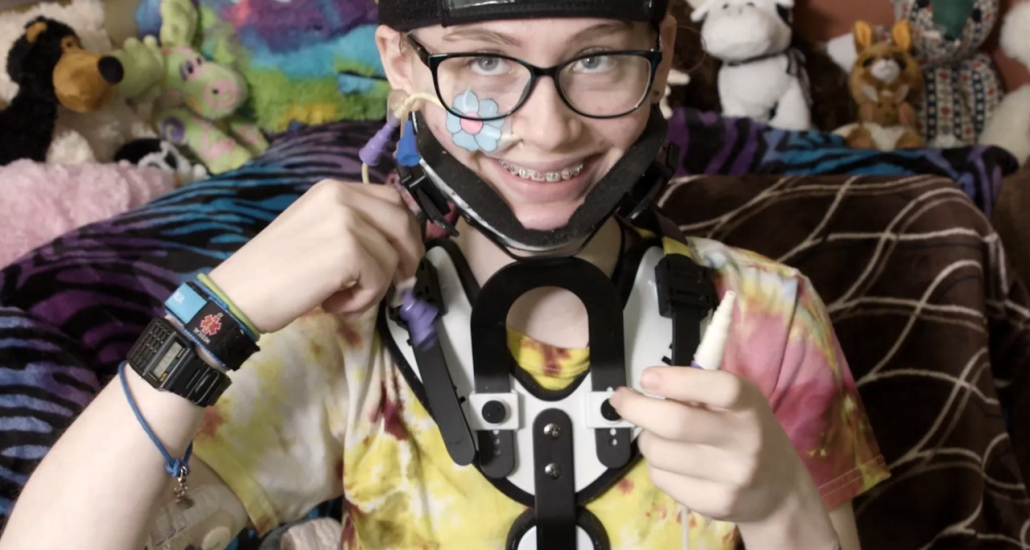
Karina Sturm: Hey Andrew, I am so excited to meet you and talk to you about this ground-breaking new film you directed. Please tell me what motivated you to make a film about people with Ehlers-Danlos syndrome.
Andrew Abrahams: I was approached by Donna Sullivan, a mother of children with EDS who was also on the board of directors of an organization called the Coalition Against Pediatric Pain (TCAPP). She had seen a film that I had previously made called Under Our Skin about the Lyme disease epidemic and how people with chronic Lyme disease have fallen through the cracks of the medical system and are not being taken seriously.
So, I had already entered into this world of mysterious and nefarious medicine and took the very clear position that there’s an injustice happening to patients in need and to a large swath of people who are not getting treatment or help. As you know, it’s a very similar situation with people with EDS or all people with invisible and complicated, complex conditions.
However, with Complicated, there was an added aspect: the parents of children with EDS were being marginalized as well. They were being accused of medical child abuse, which is what threw me for a spin personally.
Sturm: Did you know that this was such a complicated matter overall? Were you aware that in the community, this topic of child abuse allegations isn’t much talked about?
Abrahams: I remember before filming, Donna already had an idea for a name for the film, which was #complicated. At the time, I thought, “I don’t think that’s a very good title. We’ll use that as a working title for now.” Then, as I got into the project, that word just kept coming up over and over. So, it is complicated.
Even people in the EDS community don’t want to talk about child abuse allegations. To some extent, I understand it because it associates EDS with psychology. I have seen this change over the years. Now, there’s a bit more understanding that that’s part of the complicated nature of EDS.
Sturm: Can you spoil a bit of what the film is about?
Abrahams: The film is about EDS, specifically in kids and young people, on a fundamental level. So we’re starting with an illness that is not well known, not well understood. Children are not getting diagnosed, and their condition is exacerbated because it’s not treated. As a consequence, their parents take them from doctor to doctor. Eventually, they land in a children’s hospital where there’s a new specialty called child abuse medicine. They’re called medical child abuse physicians. Often, parents of a kid with a rare disease like Ehlers-Danlos syndrome fit the profile of this new category of child medical abuse because they’re seen as “doctor shopping.” Children are misdiagnosed or not believed. Parents are often flagged for over-medicalizing–or worse, Munchausen Syndrome by proxy. And that’s the basic trajectory of our film.
But Ehlers-Danlos is just one example of other rare, invisible, complicated illnesses that follow a similar trajectory, both in medicine (where patients are not being taken seriously, are misunderstood and marginalized) and in child protective systems that are failing at differentiating between actual child abuse and parents who are trying to take care of their sick kid. So the film is about that place where all these things come together.
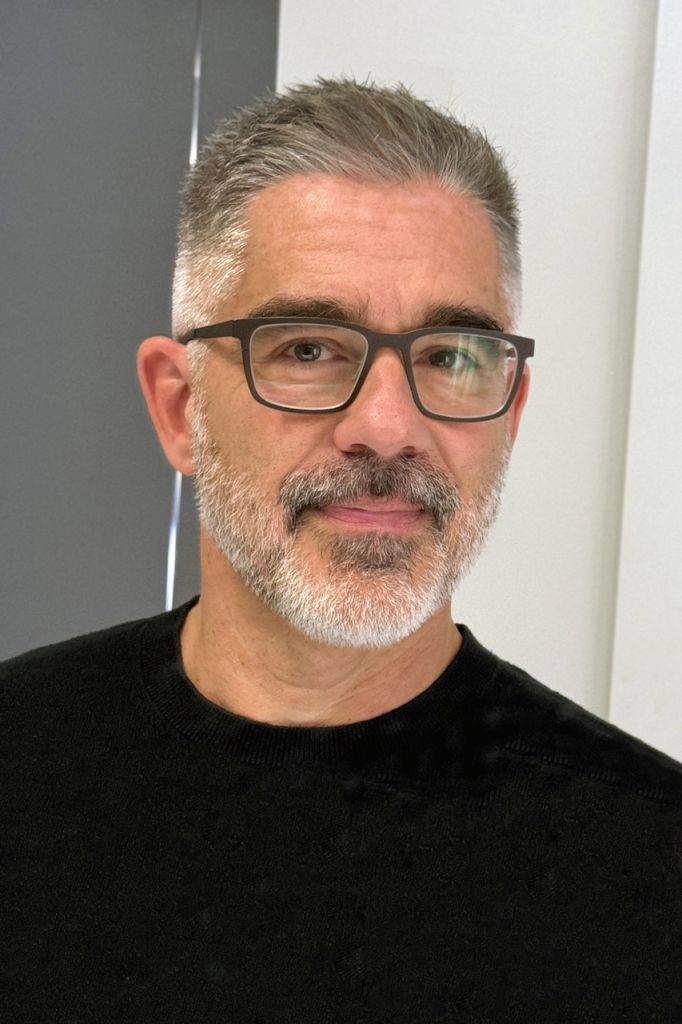
Sturm: You made a film about Lyme disease. Do you have any specific connection to chronic illness? It sounds like you’re having a strong interest in those complicated conditions. Where does that come from?
Abrahams: I don’t know where it comes from, actually. One of the things that was interesting to me about Lyme disease was that there was a lot of talk about it being a weaponized pathogen, that this was a pathogen re-engineered to be a bioweapon. We looked for that smoking gun in making the film but didn’t find it, so that topic is not even part of the finished film. But it was what initiated my interest in Lyme disease. Not only are sick people not getting help, but it’s another layer on top of it. It’s many things coming together, clashing, creating a more multi-layered subject that’s rife for exploration and excavation.
Sturm: How did you approach this whole subject since it’s such a sensitive matter?
Abrahams: I look at what I do as a reciprocal relationship. Some people think that I’m going into people’s worlds, that the camera is invasive and objectifying. I think of it more as a mutual exchange. The camera can be seen as something that protrudes and objectifies, but it’s also an opening. It’s a window, an eye, an observer. It’s something that’s receiving their experience. I want to give that opportunity for people who have not been heard to be heard, to be able to enter through the window of the camera’s lens into open hearts and minds.
With this project in particular, though, because there was so much trauma, both medical trauma and the trauma around accusations of medical child abuse, there was a lot more fear than in other projects. Some people had doubts, others were scared. Some people wanted to be anonymous. It was a surprise to me because, from my previous experience with Lyme disease, people just wanted a voice. They wanted an outlet to be heard. But Complicated had legal implications, so there was much more fear.
Sturm: I know you have a journalistic background, too, right? How did you manage to tell those stories while maintaining journalistic and ethical standards? That seems like a very fragile balance.
Abrahams: Yes I do have a background in journalism, but I don’t think of myself as a journalist. I think of myself more as an artist, which is a weird word to use in relation to what we’re discussing. But as an artist, I like to return to the root of the word “art,” which means to join. It means joining disparate parts. It’s not about discovering the truth. It’s not about showing both sides, going back and forth, and arguing something. It’s really about painting a canvas. It is about showing all those pieces that didn’t make sense to me when I started the project and putting them together in a way that helps people feel and have a sense of compassion and care. I don’t claim that my point of view is entirely objective, either. I’m telling stories, and through the combination of these stories, I want to elicit compassion, action and change.
Sturm: What was the most challenging part about making this movie?
Abrahams: The most challenging part is fundraising, without a doubt. The other difficult part was quite honestly dealing with some of the fear that we talked about earlier. Several people either backed out or wanted to back out. Some people didn’t want to say things because they were afraid of the repercussions. People were afraid. You could feel the fear and the trauma. It was a challenge not being immediately accepted. I’m used to people thinking, “Oh, he’s a good guy. This is an opportunity.” But there is a lot more fear and trauma in this community than I’ve encountered before. And I think that’s less a reflection of me. It is a reflection of the particular terrain that we’re in with Ehlers-Danlos syndrome and with accusations of medical child abuse.
Sturm: Right. People in my community experienced so much trauma and so many bad things. They just don’t trust anyone anymore.
Abrahams: Exactly.
Sturm: Were there any memorable moments you will never forget?
Abrahams: Many. I don’t want to give away too many things since the film is not out yet, but witnessing young people, usually girls, who are in chronic pain, not being believed, not experiencing their childhood the way others are, and who are dealing with issues that no child should have to deal with is heartbreaking. And that’s not even getting into the issues of being separated from their mothers and their families and being stuck in foster homes or pediatric psych wards of hospitals. So there’s just so much tragedy and heartbreak. I think that’s the most memorable.
Also, often, there is beauty next to the horror. The resilience I’ve seen in some of these children and parents, specifically mothers, who are going through this, the fortitude and the care, not just for themselves, but the real desire to use their experience and hardship to help others is beautiful.
Sturm: I assume you didn’t fully expect how this film would turn out when you started. Were you emotionally prepared for that?
Abrahams: Yes, because I’ve been in challenging situations before. For instance, I saw the suffering of people with Lyme disease or was in the dog meat farms for another film I just finished called Dog War, which is about the dog meat industry in South Korea. It’s always been on my pallette and part of my exploration, going to these difficult places, going to the dark places. I like to think not just of excavating them but also of finding the light.
Sturm: I know this film took a couple of years to complete. Why did it take so long?
Abrahams: It took a long time because of funding. That’s the bottom line. I don’t feel like we got much support from the Ehlers-Danlos Society. Overall, I expected a little more because, with the Lyme disease film, we got a lot more support from the advocacy organizations and also individual donors. Another issue was that it’s such a big story. What we got in the film is just a tiny portion of the whole story, and it’s already unwieldy.
Sturm: You’re probably aware that a couple of months ago, Take Care of Maya was released, which is also, in a way, tackling the issue of child abuse allegations. Can you share how your film differs from that one?
Abrahams: A lot. Take Care of Maya sensationalizes one story. They don’t talk about EDS (even though Maya was purported to have EDS), and they don’t go into the medical issues. It’s really just about the dramatic aspects of one family’s story. Our film tells the story behind that story, which is the broader medical story.
Sturm: What kind of impact do you hope the film will have?
Abrahams: I want to change the system. I want to ask the questions that need to be asked. I want to point to the problems that need to be pointed to. I want people going through this to know they’re not alone and to help forge alliances on behalf of patients and parents. I also want to educate physicians that this is a problem that needs to be addressed now.
Sturm: I believe your film has everything it needs to bring about those changes! But I am hoping this won’t only apply to the US but also to other countries. Will this film be available in different languages or at least translated via subtitles?
Abrahams: We have yet to determine how it will be distributed, but yes, that’s certainly something that will be done, and we’ll have it in mind.
Sturm: That would be great because many people don’t speak English. I think this film could touch so many people in so many countries. When will we be able to watch it, and how can we support the film?
Abrahams: I don’t know where you will be able to watch it yet. The film is not yet finished. It will still take a couple of months as we are finishing the music, color correction, sound mix, animation, and graphics. There’s still quite a bit to do. We’re hoping to premiere it in a top festival in either the summer or in the fall. So I can’t tell anybody where they can see the film yet. But I can tell them that they can follow it either on Facebook and Instagram and we have a trailer that’s on YouTube. And the website is complicatedfilm.com. People can sign up for the newsletter there. And they’ll get updates as soon as we know more.
Sturm: How else can we support your film besides following your social media channels?
Abrahams: Fundraising is an ongoing issue. After finishing the film, the next part of the project is creating an impact campaign. This means building partnerships and facilitating community screenings. There’s a lot more that has to be done after the film is finished, so donations are always needed. But it’s also about spreading awareness about the film and helping to generate buzz.
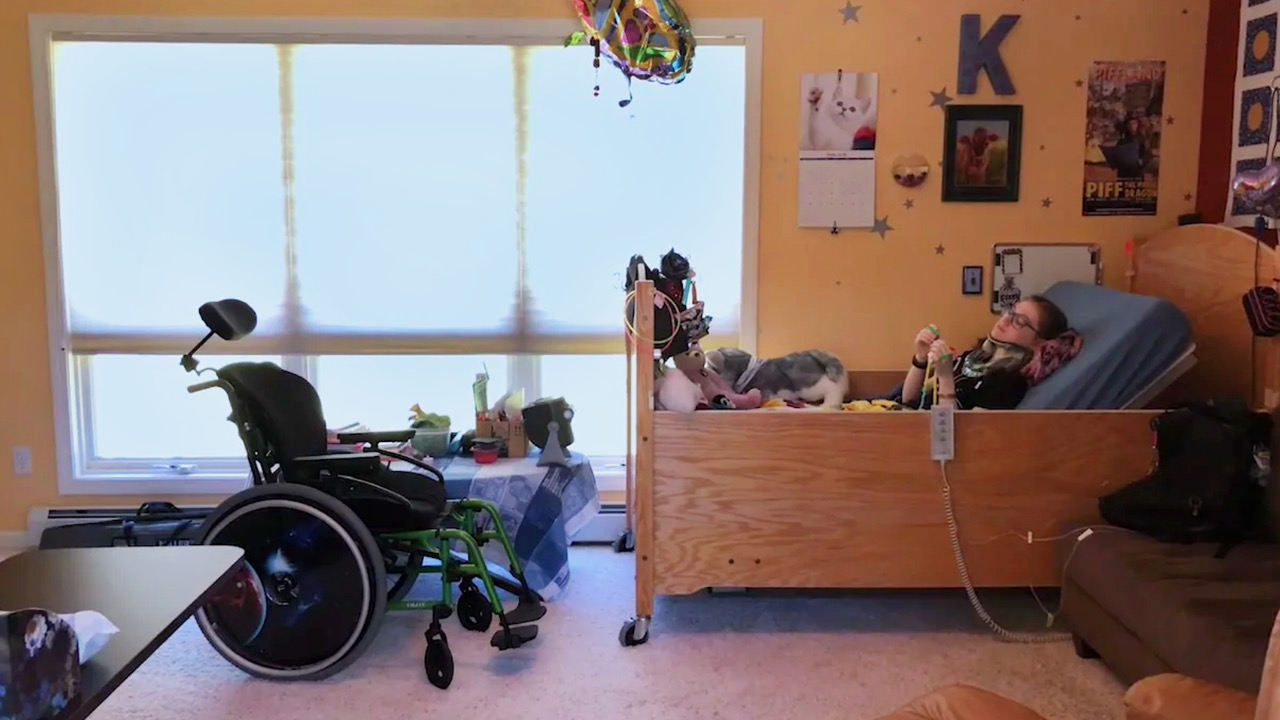
| Logline: Kids with complex, invisible illness and their families face unimaginable hurdles as they confront failing medical and child protective systems. Description: Kids with rare and complex diseases whose care is too complicated for mainstream medicine are being tossed around from specialist to specialist, abandoned and even accused of psychological disorders or of faking their illness. They often live with chronic pain and other symptoms, but are unable to get the help they need because they are considered too medically complex, or financially and legally risky—or, worse, because they or their parents may not be believed in the first place. COMPLICATED focuses on one of the most prevalent of these conditions, a connective-tissue disease called Ehlers-Danlos syndrome (EDS), which creates multi-systemic challenges for patients and physicians. Disabling and in some cases fatal, EDS is estimated to afflict from 1-in-5000 to 1-in-500 people worldwide (so it may not be a rare disease after all). What differentiates EDS and other related illnesses is their invisibility—a lack of awareness and accurate diagnostics—and the perilous medical and legal maze in which pediatric patients, their families, and even the doctors who agree to treat them, find themselves adrift. Desperately seeking multiple opinions and specialists, many parents of “complicated” kids (especially mothers) are suspected of over-medicalizing their children and risk being charged with medical child abuse, and losing custody or parental rights. COMPLICATED takes the viewer into the hidden world of children coping and trying to live their lives with rare, complex and invisible illnesses, parents facing impossible choices to help them, and providers who dismiss them as “too complicated” or risk it all to save them. Director’s Bio: President of Open Eye Pictures, Andrew is an award-winning producer/director of creative non-fiction films. He studied at Northwestern’s Medill School of Journalism and USC’s School of Cinema, and received a master’s degree in Visual Anthropology. His approach emphasizes visual imagery as a way to bridge disparate parts, peoples and ideas. Andrew’s films include AMERICAN JUSTICE ON TRIAL: PEOPLE V. NEWTON, Oscar shortlisted and winner of nine top awards including Best Short Documentary at the Pan African Film Festival; THE GROVE, broadcast nationally on PBS and awarded Best Documentary at the Seattle Lesbian & Gay Film Festival; and UNDER OUR SKIN, the recipient of seven best documentary awards at international film festivals and Academy Award semifinalist for Best Documentary Feature. His films have garnered numerous awards and been shown on Netflix, HBO, PBS, CBC, the Showtime Networks, and in theaters and film festivals worldwide. Andrew is a past budget director of the film distribution cooperative New Day Films and former board director of the Jewish Film Institute. |
You can support Complicated by…
- donating here: Open Eyes Picture Website
- sharing the Teaser:
- on Vimeo: https://vimeo.com/612915446?share=copy
- on YouTube: https://www.youtube.com/watch?v=x6ZwjD1Os0w
- Instagram: https://www.instagram.com/p/C4i4VAJLE2U/
- TikTok: https://www.tiktok.com/@complicatedthemovie/video/7347024218242010411
- LinkedIn: https://www.linkedin.com/posts/andrew-abrahams_heres-the-teaser-for-our-new-film-complicated-activity-7174835193088790530-hShN/
- following the film:
- Website: www.complicatedfilm.com
- Social Media: Facebook, Instagram, TikTok
And there is more:
Learn more about the matter on TCAPP: https://tcapp.org/
We have also interviewed Donna Sullivan about medical child abuse allegations of parents with children with EDS:
Donna Sullivan wrote a story about her experience helping produce Complicated, too:
####Link###
Karina Sturm
May 2024

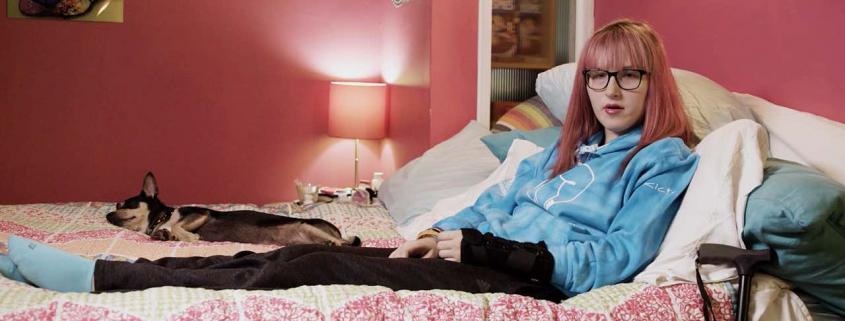



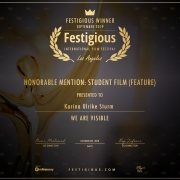

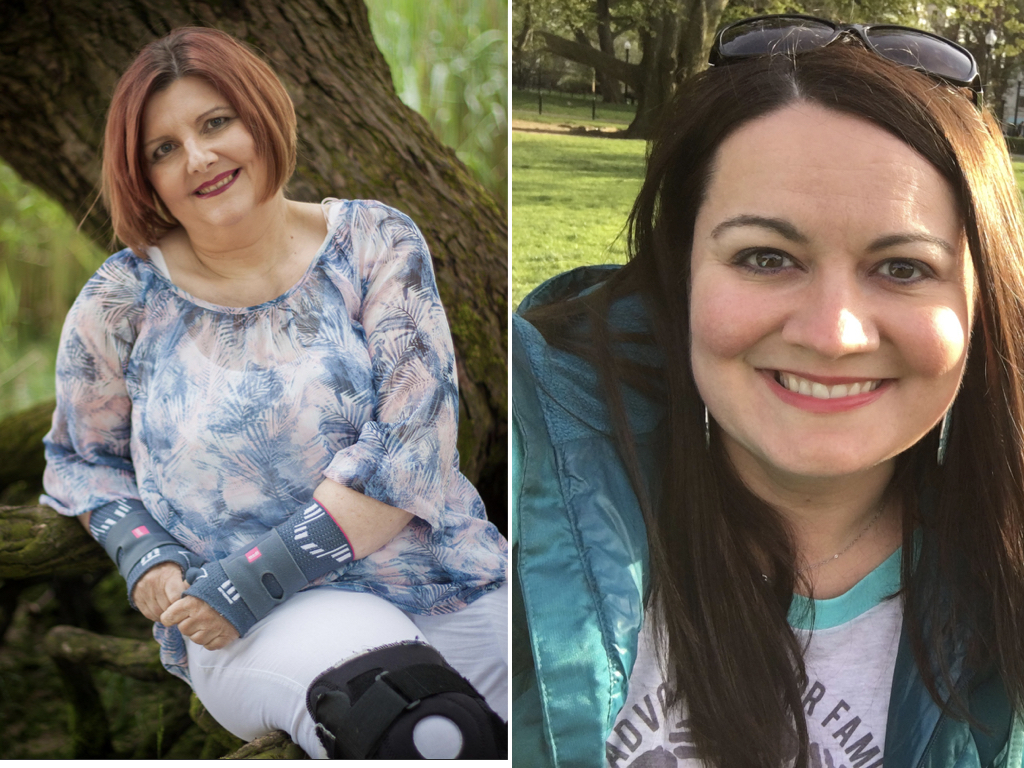


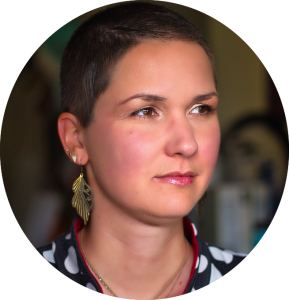


Leave a Reply
Want to join the discussion?Feel free to contribute!